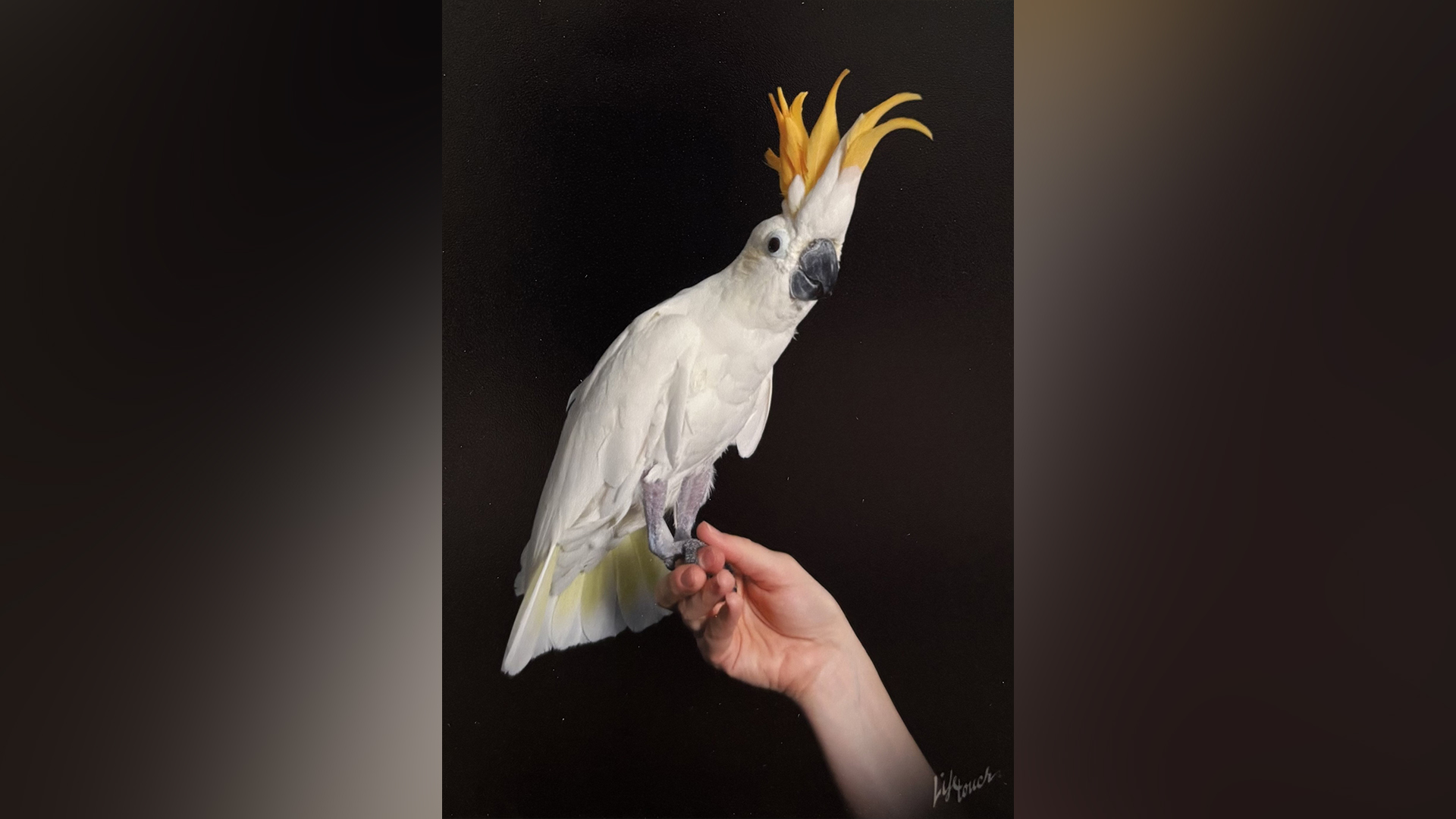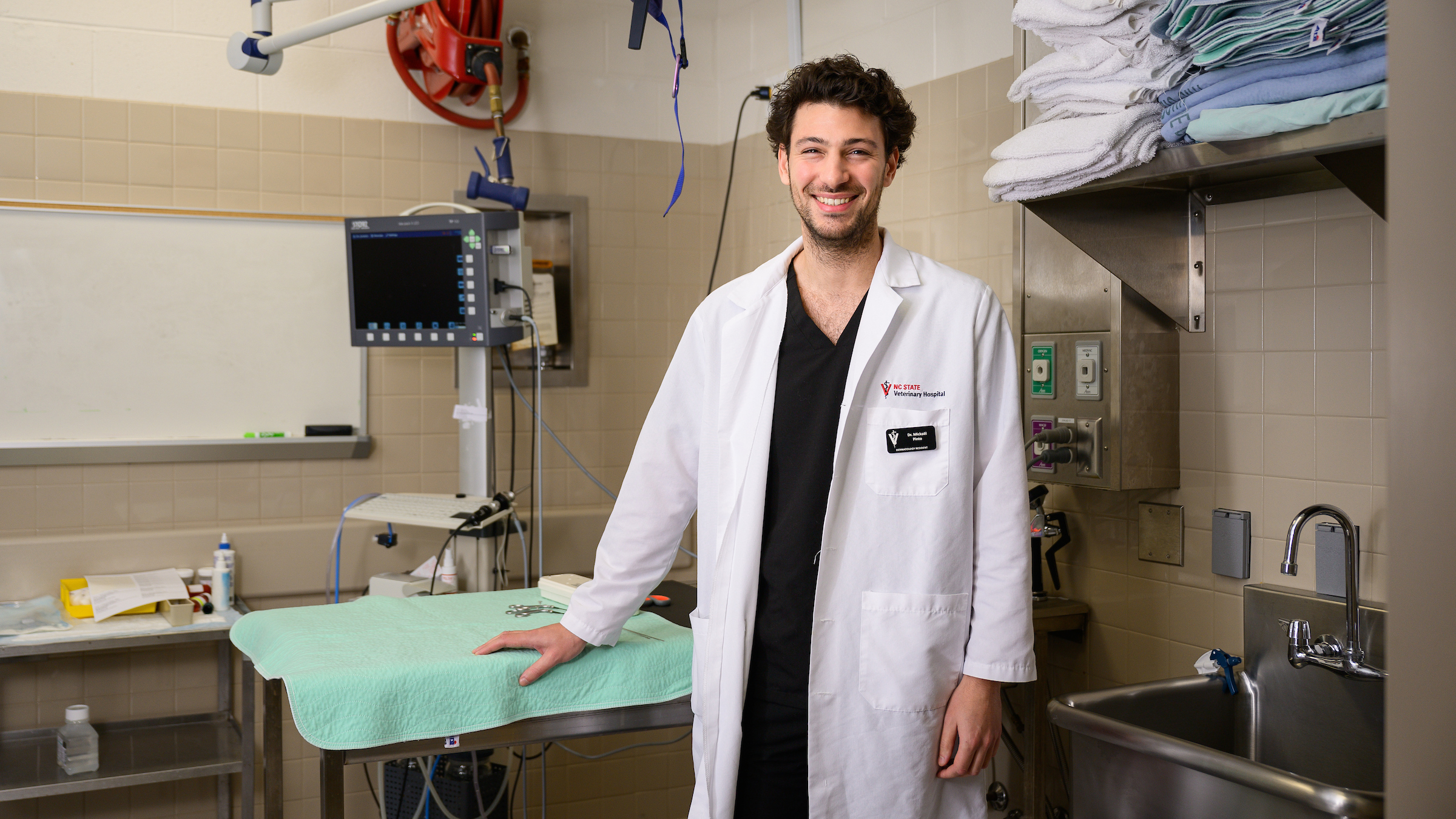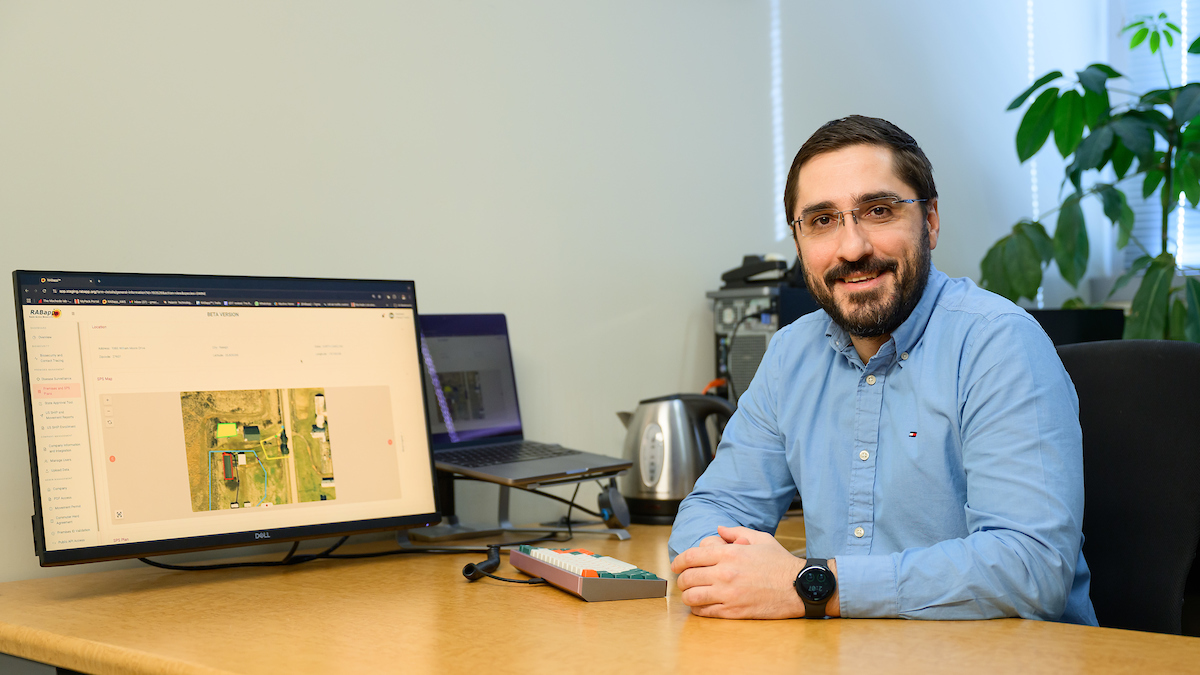Rehabilitation and Mobility Service at NC State College of Veterinary Medicine Saves Lilly the Goat
It’s not an uncommon story: A family pet comes down with a serious illness. The pet’s owners pursue treatment and rehabilitation, the pet improves and everyone gets a happy ending.
Except in this case the pet is a goat, and the rehabilitation is being done – in part – on an underwater treadmill normally used for dogs and other domestic animals.
Lilly the goat is part of a growing trend: Animals that have traditionally been considered livestock are becoming pets as they move from farms to urban and suburban settings. Chickens are the most popular farm animals to have made this transition, but the clinicians at NC State’s Veterinary Health Complex (VHC) at the College of Veterinary Medicine can tell you that other small livestock – like goats – are following suit.
“Backyard sheep and goats are becoming very popular, especially with hobby or lifestyle farmers,” says NC State clinician Christie Balcomb, who works primarily with farm animals at the VHC. “With their growing numbers, we see more and more animals that are pets rather than food animals. It isn’t uncommon for people to have a goat instead of a dog, and some owners love their goats like surrogate children.”

When Lilly came down with a severe case of internal parasitism, caused by Haemonchus contortus, her owners brought her to the VHC. Animals with Haemonchus usually become anemic as the worms attach to the stomach lining and feed on the host’s blood. In more severe cases they can become weak, unable to get up and may even die.
Treatment for uncomplicated cases is deworming, but Lilly’s case had advanced to the point that she could no longer walk and her muscles had atrophied. Balcomb and her colleagues began daily hydrotherapy, where Lilly was floated in a large water-filled cart in order to take weight off her legs and promote circulation. Range of motion exercises helped her stretch her leg muscles, and clinicians used a sling to help her start walking while slowly allowing her to bear more of her own weight. After two weeks, Lilly was back on her feet. But to help her complete her recovery, Balcomb wanted to try underwater treadmill therapy.
“She was a great candidate for the underwater treadmill therapy because it is designed to support the weight of a patient while walking or swimming, while also allowing the animal to perform normal muscular activity and build strength,” Balcomb says. “This type of therapy is proven to work in companion animals so we thought, ‘Why not food animal species? They can have many diseases and conditions similar to those of companion animals and would benefit from treatment equally.’”
That’s how Lilly the goat became the first farm animal to use NC State’s hydrotherapy treadmill at the VHC Veterinary Health and Wellness Center. Since she was a test case, Balcomb and others at the VHC donated time and raised funds to help pay for her therapy. But the results have been good, and Lilly is now back home with her owners.
Balcomb is happy that Lilly has recovered, but she’s even more pleased to be able to offer these services to all pet owners, regardless of their backyard status. “As anyone who may have dogs or cats will attest, people will go to great lengths to take care of their pets,” she says. “It is really nice to be able to care for these animals and provide the best that we can for them.”
[section_subtitle] For more information: [/section_subtitle]
Rehabilitation and Mobility Service


